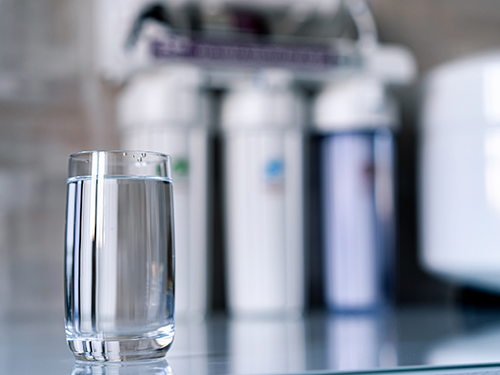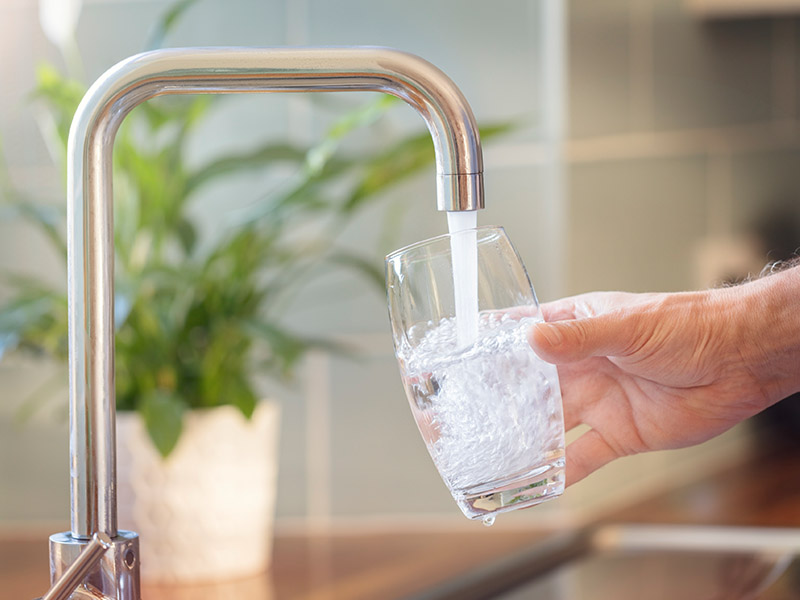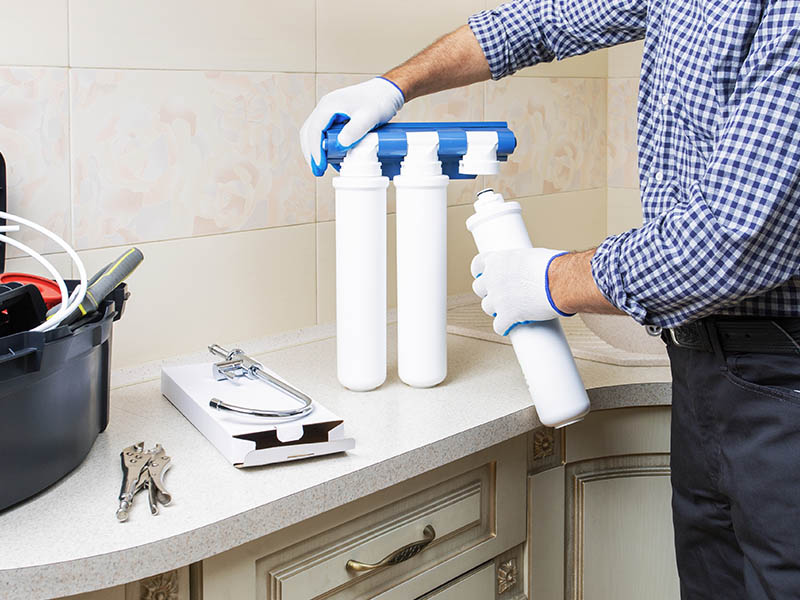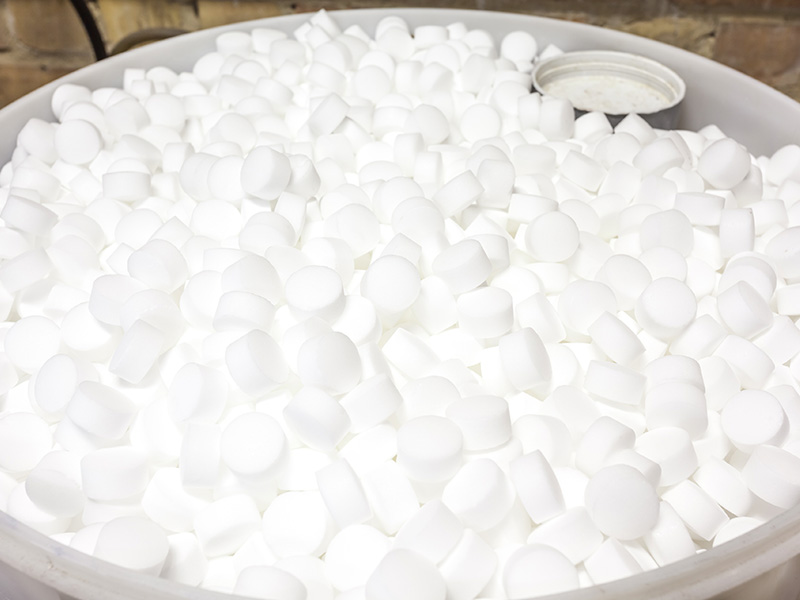Water is essential to every aspect of daily life. Yet, for many homeowners and businesses in Eastern Pennsylvania, water is also a frequent source of frustration. Whether it is the smell of rotten eggs when you turn on the tap, stubborn mineral stains in your sinks, or concerns about harmful contaminants affecting your family’s health, water problems can disrupt routines and create anxiety.
Understanding Water Quality Challenges in Eastern Pennsylvania
The geology and municipal systems across Eastern Pennsylvania present unique water quality issues. Many communities rely on groundwater sourced from wells or aquifers containing naturally occurring minerals and metals. Others receive treated municipal water that travels through miles of aging infrastructure before reaching the tap. Both sources pose distinct challenges, but the result is the same: untreated or inadequately treated water that can damage plumbing, appliances, and health.
Hard Water: The Most Common Problem
Hard water is one of the most widespread issues in Eastern Pennsylvania. This occurs when groundwater travels through limestone-rich regions, picking up excess calcium and magnesium. While these minerals are not inherently dangerous to drink, they cause significant inconveniences and expenses.
You may notice soap scum that clings stubbornly to shower doors, dry and irritated skin after bathing, or scale buildup inside your water heater and plumbing fixtures. Over time, hard water reduces the lifespan of dishwashers, washing machines, and hot water systems, leading to expensive repairs and replacements.
The most effective solution for hard water is installing a water softener system. By exchanging hardness ions for sodium or potassium, a water softener prevents scale accumulation, protects your plumbing investment, and improves everyday tasks like cleaning and bathing.
Iron and Manganese Contamination
Many private wells and even some municipal systems in Eastern Pennsylvania contain elevated levels of iron and manganese. These naturally occurring metals create distinctive problems. Iron often leaves rusty orange or brown stains in toilets, sinks, and bathtubs, while manganese produces black or purple stains. Clothing washed in iron-rich water may develop a yellowish discoloration, and appliances like dishwashers can become stained internally.
Beyond staining, iron can also impart a metallic taste to drinking water and clog pipes or well pumps over time. The most practical approach to managing these contaminants is to install an iron filtration system. These technologies remove iron and manganese effectively, eliminating stains and improving taste, odor, and equipment performance.
Hydrogen Sulfide Odor: The Rotten Egg Smell
Another common problem in Eastern Pennsylvania is hydrogen sulfide gas in water, which creates an unmistakable rotten egg odor. This sulfur smell typically results from decaying organic matter underground or the presence of sulfur-reducing bacteria in your well or plumbing system. While hydrogen sulfide is not usually dangerous at low concentrations, it is unpleasant and corrosive to pipes, water heaters, and fixtures.
Trident Water Treatment resolves hydrogen sulfide issues with specialized filtration technologies. These include aeration systems that oxidize hydrogen sulfide, activated carbon filters that adsorb sulfur compounds, and chemical injection systems when bacteria are the underlying cause.
Acidic Water and Its Corrosive Effects
Acidic water, with a pH below 7, is another concern in certain Eastern Pennsylvania communities. This problem often goes unnoticed until homeowners see blue-green stains on fixtures or experience pinhole leaks in copper pipes. Acidic water slowly dissolves metal plumbing, leaching copper or lead into drinking water and increasing health risks. Over time, pipe corrosion can lead to costly leaks and structural damage.
To neutralize acidic water, Trident Water Treatment recommends acid neutralizer systems that raise pH levels to a balanced, non-corrosive state. These systems use calcite or magnesium oxide media to naturally correct pH as water flows through them, protecting your plumbing and improving the safety and taste of your water supply.
Bacteria and Microbial Contamination
For homes relying on private wells, microbial contamination is a significant health risk. Coliform bacteria, E. coli, and other pathogens can enter well water from surface runoff, septic leaks, or natural animal activity. Contaminated water may taste or smell normal, but consuming it can lead to gastrointestinal illness or worse.
Microbial contamination can be combatted with ultraviolet (UV) disinfection systems. These systems expose water to intense UV light, destroying bacteria and viruses without chemicals. For severe contamination cases, we also provide chlorination and filtration systems to comprehensively eliminate pathogens and maintain safe drinking water standards year-round.
Chlorine Taste and Odor in Municipal Water
Even municipal water users in Eastern Pennsylvania encounter problems, particularly unpleasant chlorine taste and odor. Chlorine is essential for disinfecting public water systems, but many homeowners dislike its swimming pool-like taste in drinking water and cooking. Additionally, prolonged exposure to chlorinated water can contribute to dry skin and hair.
The most effective remedy is a whole-house carbon filtration system. Trident Water Treatment installs advanced catalytic carbon systems that remove chlorine and its byproducts, ensuring your water tastes clean, fresh, and chemical-free at every tap. These systems also protect your skin and hair from chlorine’s drying effects.
Lead and Heavy Metal Contamination
Lead contamination remains a persistent concern in regions with older infrastructure. While municipal water may leave treatment plants lead-free, it can pick up lead from old service lines or household plumbing on its journey to your faucet. Lead is a potent neurotoxin, especially dangerous for children and pregnant women.
At Trident Water Treatment, we protect families with point-of-use reverse osmosis systems or whole-house filtration systems certified for lead removal. After thorough water testing, we design solutions that eliminate heavy metal risks, providing safe and healthy drinking water for your household.
Why Professional Water Testing is Essential
Many of these water problems cannot be identified by taste, odor, or appearance alone. Professional water testing is essential to determine your water’s specific contaminants and their concentrations.
At Trident Water Treatment, our certified technicians conduct comprehensive water analyses, interpreting results to design the most effective treatment plan for your needs. This ensures your investment addresses the true problem, avoids unnecessary systems, and delivers consistent, clean water to your home or business.
Trident Water Treatment has served Eastern Pennsylvania for years with integrity, expertise, and proven results. We install, maintain, and service all systems with professionalism and a commitment to customer satisfaction, so you never need to worry about water quality again.
Regain Confidence in Your Water
Water is too vital to leave to chance. Whether you’re dealing with unsightly stains, bad odors, poor taste, or hidden health risks, Trident Water Treatment has the solutions to restore safety and peace of mind. Our team of experts is ready to analyze your water, explain your options in straightforward terms, and implement effective systems that fit your home and budget.
Contact us today to schedule your professional water test and consultation. Let us help you experience clean, healthy, problem-free water every day!




